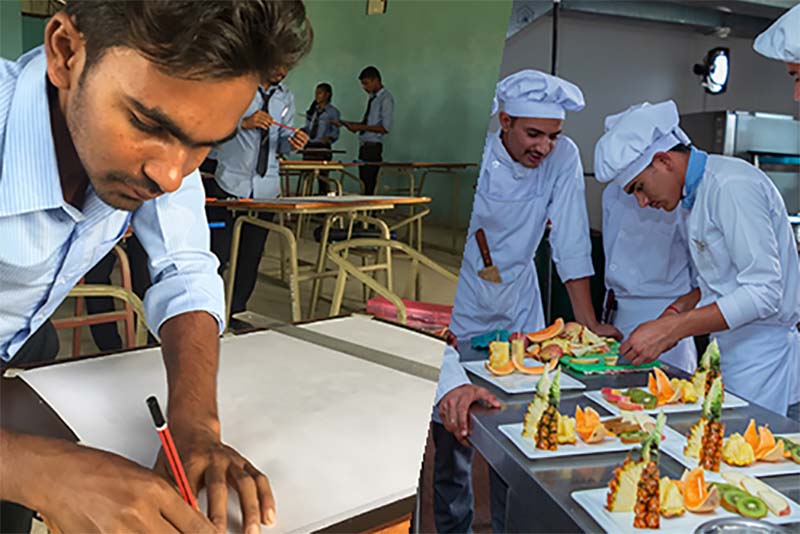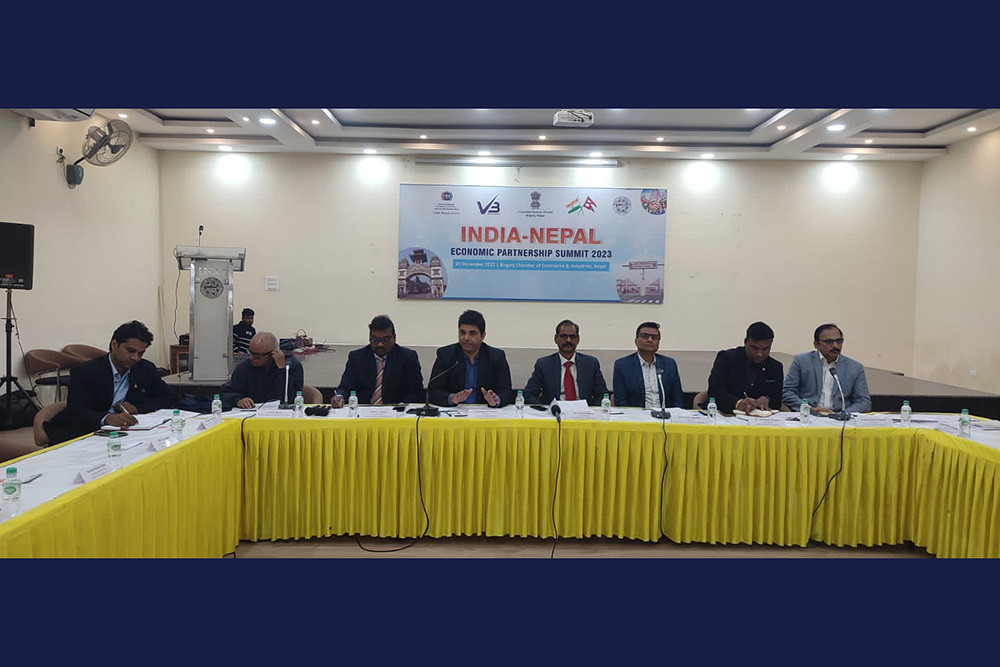
KATHMANDU: Skilled and semi-skilled human resources are prerequisites to augmenting industrial activities in a country like ours. Numerous technical institutions are producing such human resources in Nepal, but whether they fit the labour market is a growing concern of late.
Production of technical human resources on the one hand and unavailability of human resources required in the market — business, enterprise, industry, agriculture — on the other is sheer contradiction. It was what the speakers highlighted at an interaction programme organised in Kathmandu, on Sunday.
The speakers from the TVET (Technical and Vocational Education and Training) sector underscored the need to ensure need-based and competency-based TVET curriculum so that country would get required human resources. They further stressed the removal of inconsistency in the curriculums of the technical education provided under the Council for Technical Education and Vocational Training (CTEVT), and the education being catered under the technical stream from Grade 9 to 12.
The curriculum is the foundational structure that determines the standard of education and its importance. Once the education catered with similar objectives differs in curriculums, it has a direct bearing on result. The Curriculum Development Centre (CDC) determines the curriculum of technical stream of Grade 9 to 12, while CTEVT determines the TVET curriculum. Both of them are under the same ministry.
Bearing this in mind, the Ministry of Science, Education and Technology has formed a committee to look after the issues relating to the integration of curriculum of TVET and technical stream of Grade 9 to 12. At the interaction organised by the committee, the speakers representing both the government and private sectors discussed how the curriculum could be integrated and the market demand addressed.
On the occasion, TVET practitioner Usha Bhandari viewed, "Where does the problem lie- in process or outcome? Let's identify it first. If it is at outcome level, strategic planning is needed to review TVET curriculum including the integration issues."
Educationist Man Prasad Wagle said a broader focused discussion is required for the review and integration of TVET curriculum and the curriculum designed by CDC.
PhD Scholar on TVET, Durga Prasad Baral, viewed there is sheer lack of rigorous research and assessment of both curriculums to meet the standard and address market demand that contributes to national economy.
Principal at Kanya School, Dillibazar, Rita Tiwari, said the students completing Grade 12 under the technical stream were not finding jobs. It might be the reflection of a faulty curriculum, she argued, adding that there is huge problem relating to On-the Job Training (OJT) as well.
Likewise, Principal at Shankharapur Polytechnic Institute, Sushil Kumar Shrestha, said the curriculum making must be participatory and inclusive so that it can address the market needs and solve unemployment problems.
Director General at Curriculum Development Centre, Ana Prasad Neupane, said the government has realised that there should not be inconsistency in the curriculum under the technical education from Grade 9 to 12, and TVET. So, works on review and integration of curriculum were undergoing.
Similarly, Member Secretary at the National Examinations Board, Durga Prasad Aryal, reminded, "We had to conduct need assessment of technical human resources before launching technical stream from Grade 9 to 12, which we failed to." Now, the integration process has been initiated to pay heed to the problems, he added.
At the programme, Hari Pradhan made presentation on 'Towards TVET Sector Reform: Curriculum Reform- Challenges and Way Forward'. He said the actual enrollment rate on TVET was on decline in Nepal. The outcome of TVET does not commensurate with the investment in this sector. "It is worrying that TVET is belittled and considered a cheap and easy study in Nepal. This concept needs change. Sheer lack of uniformity in technical education catered in Grade 9 to 12 and by CTEVT is one of the reasons to make TVET slow off the mark," he observed.
On the occasion, other speakers shared the problems as dairy industry could not get the skilled human resources although CTEVT was producing numerous technicians every year; no linkage between CTEVT and industries to employ technical graduates, technical education failing to attract students, discrepancy of cost to study technical education in general school and technical institutes, exodus of technical human resources, non-coordination among three-tier of governments in formulating policy and acts relating to TVET.
The coordinator of the technical education curriculum integration committee, Rajendra Prasad Adhikari, said genuine concern would be addressed in this sector. The views and suggestions from different sides help make curriculum integration process inclusive, he hoped.
READ ALSO:
Published Date: April 18, 2022, 12:00 am
Post Comment
E-Magazine

Click Here To Read Full Issue
RELATED B360 National




